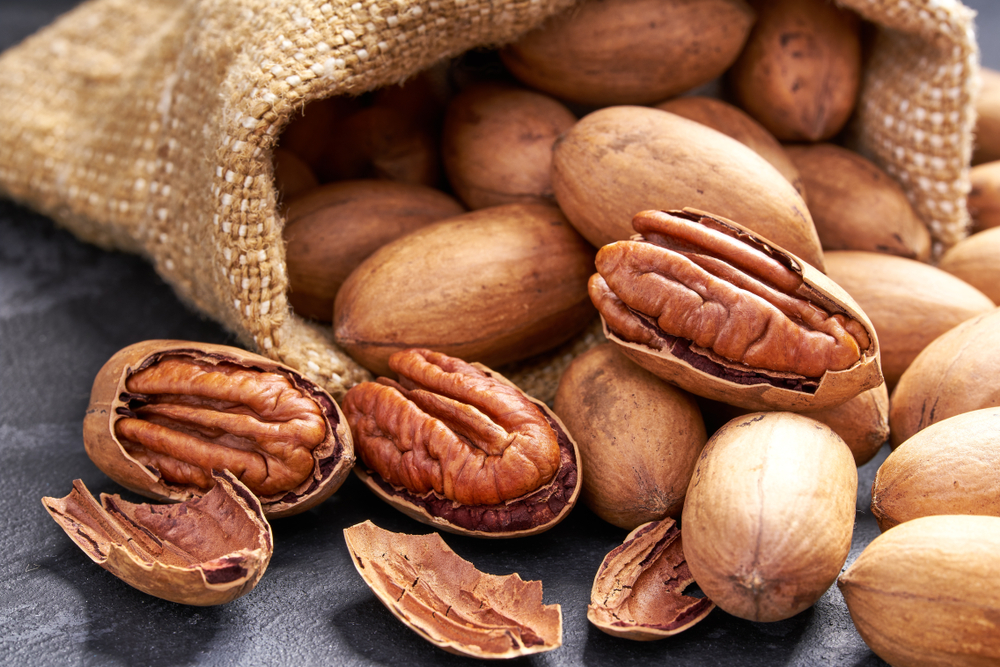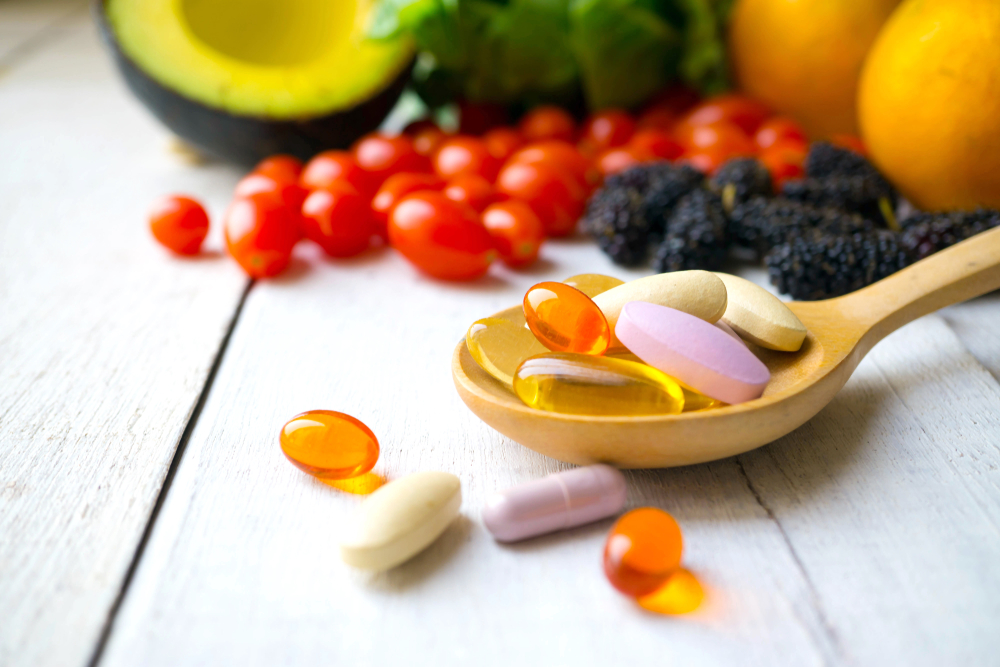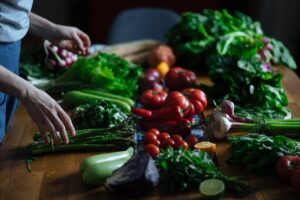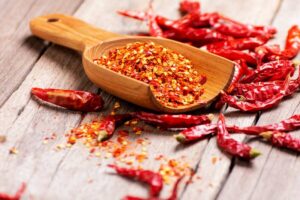How Much Do You Know About Antioxidants?
Antioxidants are the compounds produced in your body and can be found in foods. Oxidation is a chemical reaction that can produce free radicals and harmful molecules that can damage the body if levels become too high.
High free radicals cause oxidative stress, increasing the risk of developing heart disease, cancer, and type 2 diabetes. When free radicals begin to accumulate, they may cause a state known as oxidative stress.
This may also damage your DNA and other vital structures in your cells. Fortunately, eating a diet that’s rich in antioxidants can help improve your blood antioxidant levels fighting oxidative stress and reducing the risk of diseases.
Scientists use tests to measure the antioxidant content of foods, the FRAP analysis being one of the best. It measures the antioxidant range of foods by how well they neutralize a particular free radical. The higher the value, the more antioxidants those foods contain.
So without further ado: Here are the top 6 healthy foods high in antioxidants, according to scientists.
Green Vegetables
For the past few decades, nutritionists all over the world have been revealing the benefits of green vegetables to the human body. Most green veggies are packed with many of the vitamins and minerals the human body needs for survival.
After all, let’s not forget that humans were originally vegetarians who dined primarily off the vegetation they found around them.
Among some other essential nutritional elements, green vegetables like kale, broccoli, lettuce, cabbage, and turnips are loaded with antioxidants.
A few other vegetables that help in the fight against those nasty oxidants are red peppers, tomatoes, beets, sweet potatoes, eggplant, onions, and carrots.
Dark Chocolate
Dark chocolate is not only mouthwatering but also nutritious and one of the best sources of antioxidants you could hope for. Generally, the higher its cocoa content, the more antioxidants it contains.
Based on that FRAP analysis, dark chocolate has up to 15 mmol of antioxidants per 3.5oz. This is even more than berries, which contain up to 9.2 mmol of antioxidants in the same serving size.
Moreover, cocoa and dark chocolate antioxidants have been linked to health benefits, including less inflammation and reduced risk factors for heart disease.
A review of 10 studies even examined the link between cocoa intake and blood pressure in healthy people and those who deal with high blood pressure.
The results? Eating dark chocolate can reduce the risk of heart disease by raising blood antioxidant levels, increasing levels of good HDL cholesterol, and preventing bad LDL cholesterol from becoming oxidized.
Oxidized LDL cholesterol is harmful because it causes inflammation in the blood vessels, leading to an increased risk of heart disease.
Beets
Beets, likewise known as beetroot, are the roots of a vegetable with the scientific name: Beta Vulgaris. They have a mild sort of taste and are a terrific source of iron, fiber, potassium, folate, and… antioxidants!
Based on the FRAP analysis, this vegetable contains up to 1.7 mmol of antioxidants per each 3.5oz. They’re especially rich in a group of antioxidants called “betalains.”
These betalains give beets that reddish color we recognize and have been linked to many other health benefits as well. For instance, several test-tube studies have linked betalains to a lower risk of certain cancers in the colon and digestive tract.
Furthermore, beets also contain other compounds that can help subdue inflammation. For example, a study found that taking betalain capsules made from beetroot extract significantly relieved osteoarthritis pain and inflammation.

Pecans
Pecans are rich in healthy fats, minerals, and antioxidants. They’ve also been known to help raise blood antioxidant levels and lower bad cholesterol. Based on the FRAP analysis, this nut contains up to 10.6 mmol of antioxidants per each 3.5oz.
In addition to that, they can help raise the antioxidant levels in your blood. For instance, research shows that people who consumed 20 percent of their daily calories from pecans had significantly increased blood antioxidant levels.
In a specific study, people who ate pecans experienced a 26–33% fall in oxidized blood LDL levels within 8 hours. This is major because, as we know, High levels of oxidized LDL cholesterol in the blood are a considerable risk factor for heart disease.
But even though pecans are a great source of healthy fats, they’re also high in calories. So you should try eating them in moderation to avoid consuming too many calories.
Beans
Beans are a low-cost way of increasing your antioxidant intake. They also contain the antioxidant kaempferol, linked to anticancer benefits in animal and test-tube studies. Beans are also incredibly high in fiber, helping keep your bowel movements regular.
The FRAP analysis found that broad green beans possess up to 2 mmol of antioxidants per 3.5 ounces. In addition to this, some beans, including pinto, contain a particular antioxidant called kaempferol.
This antioxidant has impressive health benefits, like reducing chronic inflammation and suppressing cancer growth. For instance, several animal studies found that kaempferol can stop the growth of cancers in the breast, kidneys, bladder, and lungs.
But because all of the research supporting the benefits of kaempferol has been on animals or test tubes, more human-based studies are required.
Red Cabbage
Red cabbage is another yummy way of increasing your antioxidant intake. The red color in it comes from its high content of anthocyanins, a group of antioxidants linked to impressive health benefits. Also known as purple cabbage, it’s also rich in vitamins K, C, and A.
According to its FRAP analysis, this veggie provides up to 2.2 mmol of antioxidants per 3.5 ounces. That’s more than four times the amount in regular cooked cabbage.
That’s because the red version contains anthocyanins, a group of antioxidants that give the red cabbage its color. Anthocyanins can also be found in strawberries and raspberries.
Furthermore, they can reduce inflammation in the body, protect against heart disease, and reduce the risk of specific cancers. Moreover, its vitamin C content will help strengthen the immune system and keep your skin firm.
Interestingly, how red cabbage is cooked can also affect its antioxidant levels. Boiling and stir-frying it can boost its antioxidant profile while steaming it might reduce its antioxidant content by nearly 35 percent.

Are There Any Benefits Of Taking Antioxidant Supplements?
The best sources to get the antioxidants you need are through the foods you eat. And certain studies have shown that there MAY be risks when taking antioxidant supplements, such as:
- High doses of beta-carotene have been linked to increased risks of lung cancer in smokers.
- High doses of vitamin E have been linked to increased risks of hemorrhagic stroke and prostate cancer.
- Antioxidant supplements may counteract some medications
- Vitamin E may even increase the risk of bleeding in people taking blood thinners.
- Some studies concluded that taking antioxidant supplements during cancer treatment can be harmful. Consult a medical specialist before taking anything if you’re undergoing cancer treatment.
Aside from the possible side effects, increased risk of illness, and drug counteractions, many studies have failed to show any significant health benefits of taking antioxidant supplements.
To conclude, adding some of these foods to your diet may significantly boost your health. Give them a try and tell us what you think!
Meanwhile, we have another great article you might be interested in. Check out: 6 Toxins in Food That Should Concern You







